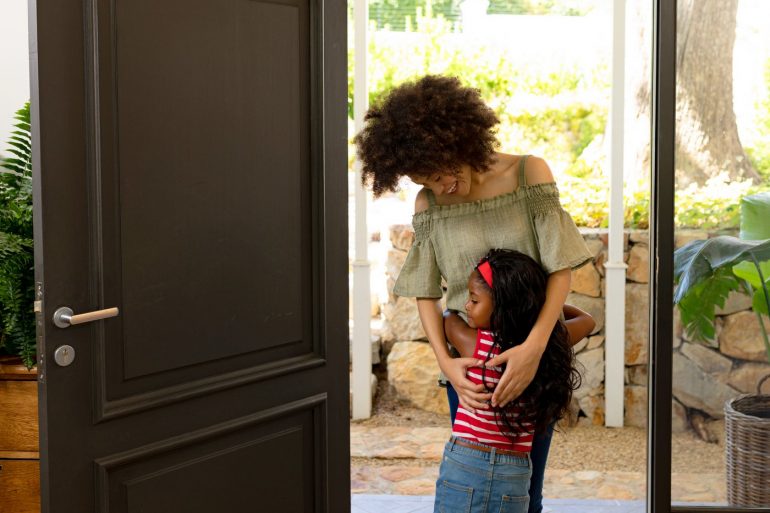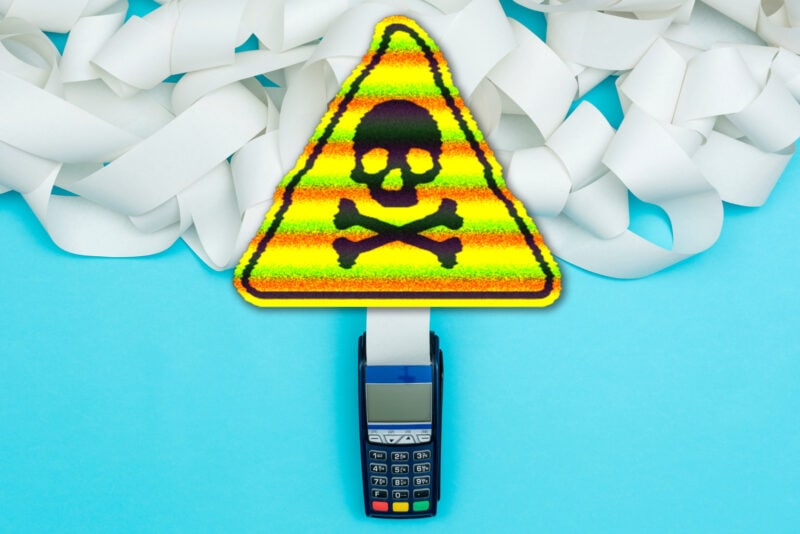Being a mom or dad is often stressful, but there are a few things you can do to be a more chill parent – and both you and your kid will benefit.
What parent hasn’t lost their temper when a kid misbehaves? A parent who hasn’t lost his or her cool is a mythical creature, probably riding on a unicorn over a rainbow right now.
I could count the times I’ve lost my cool as a dad on the fingers of one hand — of course, that hand would need to have limitless fingers, and I’d need a really long time to count those fingers.
However, I can say one thing: I’m a much calmer dad these days. I still get mad from time to time (I’m human), but it’s no longer a daily occurrence or even weekly.
What’s my secret? Lots of conscious practice. I also realized this: that yelling and punishing don’t work. It’s ineffective and counterproductive.
Chill out, people
Let me say that again: yelling and punishing are ineffective parenting methods. If they worked, we’d all be brilliant parents, and kids would always be perfectly behaved after we yelled.
I don’t need parenting studies to tell me that: I can see it in my own kids. Sure, I can yell at them, and perhaps they’ll cower in fear if they think I’ll raise a hand. What I’m teaching them is not good behavior, but to fear me.
And worse, I’m teaching them to yell when they get angry, to resolve conflicts with violence, instead of talking things out and coming to a peaceful resolution.
I’m also teaching them that what I want is more important than what they want, and I’m willing to do awful things to get what I want at any cost, even at the cost of our relationship.
Those aren’t things I want to teach my kids. I want them to know that my relationship with them is more important than getting them to behave a certain way this one time.
And yes, I know that kids need boundaries — I believe in boundaries too. I set them and my kids know it’s not cool to go beyond them.
And yes, I know that they need to be taught how to behave appropriately. I just no longer believe that yelling is the way to teach them appropriate behavior. Losing my temper and behaving badly is not the way to teach them how to act when they lose their temper and behave badly.
Because the example we set for them — how to act when things don’t go our way — is much, much more important than the rules we set for them. They learn lessons about behavior by our example, over time.
Walk the walk. That’s why I committed to being mindful and peaceful as a parent, even if I violate that commitment from time to time. When I violate the commitment, I apologize and talk about why I was wrong. Because then my example is how to behave after you’ve behaved badly.
Being a mom or dad is often stressful, but there are a few things you can do to be a more chill parent — and both you and your kid will benefit.
Here are a few lessons on keeping your cool when things go badly
1. It’s not about you.
We parents tend to take kids’ bad behavior personally, as if what they’re doing is a personal attack on us or our belief systems, a personal offense. That’s why we get mad. The anger isn’t helpful, but it comes up because we think they’ve done something to us.
They’re not really trying to do anything to us — they’re kids, and they don’t know how to handle themselves when they don’t get what they want or they get angry for some reason.
It’s about what they’re going through, and if we remove ourselves from the equation, we can more objectively see what they’re going through and how we can help.
2. Be their guide, not their dictator.
Kids need to learn how to make their way through the world, because we won’t always be there to tell them how to act. And so the best way to teach them isn’t by laying down the law all the time — if we dictate their actions then they never learn how to make decisions on their own.
We should let them make their own decisions, within boundaries of course, and guide them when they need our help. Imagine being Yoda (the mentor) instead of Darth Vader (the death-grip dictator). Sidenote: Using Star Wars to teach lessons to your kids is awesome.
3. What do they need?
When things don’t go their way, when they’re angry, when they’re afraid… what do they need? You yelling at them or threatening them isn’t helpful — put yourself in that situation (and imagine you’re smaller) and ask if you’d like someone yelling at you when you’re upset.
How would you react if someone bigger and more powerful than you were yelling and threatening you? You wouldn’t like it, and would just resent the bigger person.
What would be helpful? Maybe some comfort? Some calm conversation about the problem, examining solutions. Some empathy and compassion. And yes, some stern words or a restraining hand if they’re actually going to hurt themselves.
4. Take a timeout.
When you’re angry, in the moment, it’s usually best to walk away, and breathe, and calm down. Talk to them when you’re cooler, and can think straight. This is hard to do, because as parents we tend to just dive in and try to take care of the situation in the moment.
But it’s hard to make good decisions, talk calmly, not act irrationally, when we’re upset. That’s true of kids too, by the way.
You can try exercise as a way to cope with stress. A walk or workout or run in solitude is a lovely thing. Another good stressbuster: Get a massage now and then.
5. If you haven’t yet lost your cool, drop down for a moment.
When you see yourself stressing out about a situation, or starting to get angry but not full on lost it yet… take a breath. Pause. Drop down inside yourself and see yourself frustrated or stressed. Give yourself a moment of compassion for this frustration, which is perfectly normal and okay.
Ease your pain, wish yourself happiness, and then take another breath. If you can, try to see that your child is suffering in much the same way, and needs your compassion, too.
6. Commit to being present.
When your child asks for your attention, grant it. There are a lot of different ways to do this.
For one, let your child share your interests. Bake cookies together. Sew together. Exercise together. Read together. Work on a website together. Write a blog together.
Sing and dance together. (You can get your parents involved, too — here’s why!)
7. Model the behavior you want your child to learn.
Don’t yell at a child because he was screaming. Don’t get angry at a kid for losing his temper. Don’t get mad at them when they want to play video games all the time since you’re always on your laptop. Be calm, smile, be kind, go outdoors and be active.
I actually promised my kids that I’d be a more mindful parent, and asked them to watch me. If they caught me losing my temper, I would put a dollar in a jar to go get ice cream with them. It helped — they haven’t called me out yet.
Patiently teach your child the boundaries of behavior. There should be boundaries — what’s acceptable and what’s not. It’s not OK to do things that might harm yourself or others. We should treat each other with kindness and respect.
Those aren’t things the child learns immediately, so have patience, but set the boundaries. Within those boundaries, allow lots of freedom.
7. Give your child some space. Parents too often overschedule their child’s life, with classes and sports and play dates and music and clubs and the like, but it’s a constant source of stress for both child and parent to keep this schedule going.
Let your kid go outside and play. Free time is necessary. You don’t always have to be by their side either — they need alone time just as much as you do.
8. Know that you’ll mess up.
Expect to have difficulties, but learn from them. See where you went wrong. Be mindful as the difficulty is happening, and see this as a good step towards being more mindful and compassionate as a parent.
Review your actions, and instead of feeling bad, see where you could improve, and have a plan for next time this happens.
It’s important to plan it out when you’re calm, not decide how to handle things when you’re angry. And adjust the plan next time things go wrong, so that the plan gets better and better over time, and so do your compassionate parenting skills.
The main problem is that we have some ideal as parents, of how our kids should behave. We think they should be ideal kids, but in truth they’re not ideal, they’re real. They have faults, just like we do.
They need help, they make mistakes, they get angry, they get frustrated. We do too. Let’s figure out how to behave when we make mistakes, get angry, get frustrated, and show the kids how to do this through our example.
Accept them for who they are, faults and all. Love them completely, with hugs instead of yelling. I’ve found hugs to be a much more effective teacher than anything else in my parenting toolset.
9. Find the joy
Remember that your child is a gift. They won’t be young for long, and so your time with them is fleeting. Every moment you can spend with them is a miracle, and you should savor it. Enjoy it to the fullest, and be grateful for that moment.
Take every opportunity to teach kindness and love. It’s the best lesson. And every night, kiss your kiddo goodnight. And give thanks for another amazing day with your beautiful, unique, wild and wonderful child.
















